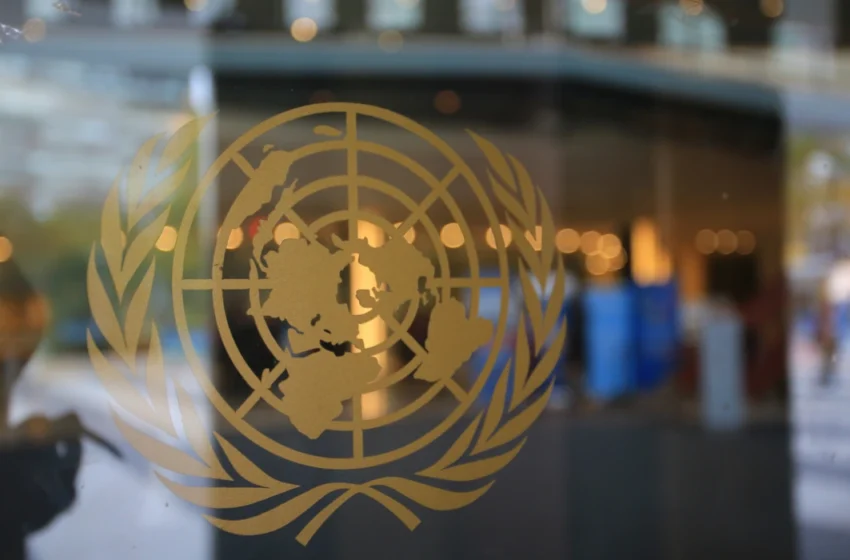
UN tax convention: A historic opportunity for global economic reform
The Worldwide Centre for Tax and Development’s study provides crucial insights into the challenges and prospects of the upcoming negotiations on a new UN-led global tax convention in New York. United Nations member states are negotiating the first-ever treaty on international tax cooperation, which could replace the current patchwork system that denies governments billions of dollars in revenue and threatens human rights. African nations, who are underrepresented in international economic decision-making and suffer especially severe losses under the current tax system, started the treaty procedure in 2022.
Urgent need for global tax reform
There are currently few policies in place to stop or discourage affluent people and multinational corporations from moving their assets and income to tax havens, which results in a significant loss of public revenue and exacerbates inequality. Addressing intricate tax issues like cross-border services and illegal financial flows is even more difficult in the absence of a global treaty.
By bringing domestic and international economic decision-making into line with the achievement of human rights, equitable global tax laws are essential to promoting “human rights economies.” Human rights law requires governments to fulfill economic, social, and cultural rights, including the rights to social security, health care, and education, by using all available resources, including through international collaboration. To fulfill this duty by generating the funds necessary to support these rights and to lessen inequality both within and between nations, tax cooperation is essential.
A committee was created by the Terms of Reference to prepare two protocols and a framework convention by 2027, one of which would address cross-border services in the digital economy. The United States departed the room after declaring its opposition to the treaty on the first day of deliberations. The European countries’ proposal to include the prevention and resolution of tax disputes in the second protocol was accepted despite the African group’s insistence that it address illicit financial flows.
UN tax convention
The dispute over decision-making rules was more difficult. The European Union was among the nations that demanded decisions be made solely by agreement, thereby granting each delegation a veto. If an agreement could not be reached, others, led by the African group, sought a simple majority vote, which is typical for framework conventions. In the end, they decided to require a two-thirds vote for the protocols’ content and a simple majority vote for the framework convention.
A landmark resolution to start working on a UN tax convention was passed by the UN General Assembly in November 2023 with a resounding majority. After three weeks of rigorous negotiations, the draft terms of reference were adopted by August of last year.
Negotiations for establishing the framework are set to commence in February 2025 and are expected to conclude by 2027. For the first time, all nations will engage in international tax discussions on an equal footing, as a result of an initiative led by the Group of African States that has launched a UN process toward creating a legally binding convention on international tax cooperation.
Governments have a once-in-a-lifetime chance to reform an antiquated international tax system that costs them hundreds of billions of dollars in lost tax income.
Through an inclusive, open, and transparent global negotiation process, the United Nations Framework Convention on International Tax Cooperation offers a chance to finally progress toward a cohesive worldwide tax system that has the support of all nations.
Governments lose billions in tax revenue
Governments have lost hundreds of billions of dollars in public income due to the 1920s’ flawed international tax system. Based on estimates from researchers at the University of California, Berkeley, and the University of Copenhagen, about 40% of global profits, roughly $1 trillion in 2019, are transferred to tax havens annually. The consequent revenue loss is estimated to be between $200 billion and $650 billion.
The international tax system has historically worked against the interests of the Global South since it was constructed on top of the tax policies of the imperial trading blocs in the 1920s. The rules governing the distribution of taxing rights were created to give preference to nations. The corporations have their headquarters, which are primarily in the Global North, over “source countries,” which are the nations in the Global South that host foreign corporations and are where economic activity occurs. One significant international instrument for resolving these long-standing North-South disparities is the UN tax treaty.
The Terms of Reference, approved by 110 nations, show widespread support for a system that costs governments approximately $500,000 annually in tax evasion and abuse.


